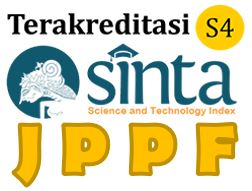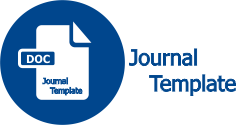Design of Electronic Worksheets Integrated with Problem Based Learning and ethnoscience to improve Critical Thinking Skills of High School Students
DOI:
https://doi.org/10.24036/jppf.v11i2.16Abstract
The rapid advancements in science and technology in the 21st century necessitate significant improvements in the quality of education, especially in fostering students' critical thinking skills. These skills are crucial in the study of physics, as they encompass logical reasoning that can be substantiated. However, current assessments reveal that students' critical thinking abilities are notably lacking, with an average test score of only 46. 78, categorizing them as low performers. This shortfall can largely be attributed to passive learning methods and teaching materials that fail to align with students' learning styles. To tackle this issue, it is essential to develop teaching materials that promote critical thinking. One promising approach is the creation of electronic-based student worksheets that incorporate the Problem-Based Learning (PBL) model alongside an ethnoscience perspective. The PBL model encourages students to actively engage in analyzing problems systematically, while the ethnoscience approach integrates local wisdom into the learning process, making it more relevant and meaningful. This innovative combination aims to transform E-Student Worksheets into a powerful tool for enhancing student engagement and boosting critical thinking skills.
Downloads
References
Adhelacahya, K., Sukarmin, S., & Sarwanto, S. (2023). Impact of Problem-Based Learning Electronics Module Integrated with STEM on Students’ Critical Thinking Skills. Jurnal Penelitian Pendidikan IPA, 9(7), 4869–4878. https://doi.org/10.29303/jppipa.v9i7.3931
Ahmad Fahrudin, & Eka Maryam. (2022). Review Analisis Pendidikan Fisika Berbasis Etnosains, Budaya, dan Kearifan Lokal di Indonesia. Jurnal Riset Rumpun Matematika Dan Ilmu Pengetahuan Alam, 1(1), 12–24. https://doi.org/10.55606/jurrimipa.v1i1.126
Amalia, I. R., & Dewi, N. R. (2024). Analisis Model Pembelajaran Problem Based Learning Untuk Meningkatkan Berpikir Kritis Peserta Didik. PRISMA, Prosiding Seminar Nasional Matematika, 7, 281–289. https://proceeding.unnes.ac.id/prisma
Arifah, N., Kadir, F., & Nuroso, H. (2021). Hubungan Antara Model Pembelajaran Problem Based Learning Dengan Kemampuan Berpikir Kritis Pada Pembelajaran Fisika Siswa. Karst : JURNAL PENDIDIKAN FISIKA DAN TERAPANNYA, 4(1), 14–20. https://doi.org/10.46918/karst.v4i1.946
Depdiknas. (2008). Panduan pengembangan bahan ajar. Jurnal Ilmu Pendidikan, 7(2), 809–820.
Diana, R., & Sofi Makiyah, Y. (2021). Efektivitas Lembar Kerja Peserta Didik (LKPD) Berbasis Model Problem Based Learning (PBL) Untuk Meningkatkan Keterampilan Pemecahan Masalah Pada Materi Interferensi Celah Ganda. Jurnal Pendidikan Fisika, 10(1), 48–54. http://jurnal.unimed.ac.id/2012/index.php/jpf48
Ennis, R. H. (1996). Critical Thinking Dispositions: Their Nature and Assessability. Informal Logic, 18(2), 165–182. https://doi.org/10.22329/il.v18i2.2378
Herawati, Ismet, & Kistiono. (2022). Jurnal Muara Pendidikan Vol . 7 No . 2 ( 2022 ) PENGEMBANGAN LEMBAR KERJA PESERTA DIDIK ( LKPD ) BERBASIS PROBLEM BASED LEARNING ( PBL ) UNTUK MENINGKATKAN E-ISSN 2621-0703 P-ISSN 2528-6250. 7(2), 165–177.
Jamil, M., Hafeez, F. A., & Muhammad, N. (2024). Critical Thinking Development for 21st Century: Analysis of Physics Curriculum. Journal of Social & Organizational Matters, 3(1), 01–10. https://doi.org/10.56976/jsom.v3i1.45
Lismayani, I., Mahanal, S., & Sulawesi, K.-S. (2017). The Correlation of Critical Thinking Skill and Science Problem-Solving Ability of Junior High School Students. Jurnal Pendidikan Sains, 5(3), 96–101. http://journal.um.ac.id/index.php/jps/
Mudrikah, A. (2021). Problem Based Learning as Part of Student-Centered Learning. Social, Humanities, and Educational Studies (SHEs): Conference Series, 3(4), 1. https://doi.org/10.20961/shes.v3i4.53237
Munawaroh, E. (2024). Design of Electronic Education Worksheets Integrated with Problem Based Learning to Facilitate Critical Thinking Skills of High School Students. 10(2), 217–227.
Nur, S. F., Arsih, F., Fadillah, M., & Anggriyani, R. (2023). Pengaruh Penerapan Model Pembelajaran Problem Based Learning (PBL) Berpendekatan Etnosains Terhadap Keterampilan Berpikir Kritis Peserta Didik Pada Materi Perubahan Lingkungan. Jurnal Pendidikan Tambusai, 7(2), 16312–16322.
Nuzula, N. F., & Sudibyo, E. (2022). Pensa E-Jurnal : Pendidikan Sains Penerapan Model Problem Based Learning Untuk Meningkatkan. 10(3), 360–366.
Rerung, N., Sinon, I. L. ., & Widyaningsih, S. W. (2017). Penerapan Model Pembelajaran Problem Based Learning (PBL) untuk Meningkatkan Hasil Belajar Peserta Didik SMA pada Materi Usaha dan Energi. Jurnal Ilmiah Pendidikan Fisika Al-Biruni, 6(1), 47–55. https://doi.org/10.24042/jpifalbiruni.v6i1.597
Ricky Ardiansah, & Zulfiani, Z. (2023). Development of interactive e-LKPD based on creative thinking skills on the concept of environmental change. JPBI (Jurnal Pendidikan Biologi Indonesia), 9(2), 179–197. https://doi.org/10.22219/jpbi.v9i2.22389
Riyatno, W., & Hayuhantika, D. (2023). Pengembangan E-LKPD berbasis Articulate Storyline bercirikan RME untuk Menstimulasi Kemampuan Berpikir Kritis Siswa Kelas VII Pada Materi Aritmatika Sosial. AdMathEduSt, 10(4), 149–159.
Samadun, S., & Dwikoranto, D. (2022). Improvement of Student’s Critical Thinking Ability sin Physics Materials Through The Application of Problem-Based Learning. IJORER : International Journal of Recent Educational Research, 3(5), 534–545. https://doi.org/10.46245/ijorer.v3i5.247
Samsul Anuar, Z. A. (2024). The Effect of Implementing a Case Study-Based Problem Based Learning Model on Student Learning Outcomes at SMAN 2 Pulau Punjung. Physics Learning and Education, 2(2), 56–65. https://doi.org/10.24036/ple.v2i2.146
Shofiyatul, M., Sudibyo, E., & Tarzan, P. (2021). Profil Pembelajaran Berbasis Masalah untuk Meningkatkan Keterampilan Berpikir Kritis Siswa. IJORER: Jurnal Internasional Penelitian Pendidikan Terkini, 2(6), 682–699. https://journal.ia-education.com/index.php/ijorer/article/view/171
Sianturi, A., Sipayung, T. N., & Argareta, M. (2018). Pengaruh Model Problem Based Learning ( PBL ) Terhadap Kemampuan Berpikir Kritis Matematis Siswa SMPN 5 Sumbul. 6(1), 29–42.
Sugiyono. (2013). METODE PENELITIAN KUANTITATIF, KUALITATIF, DAN R&D (19th ed.). Alfabeta, CV.
Utami, E. (2025). Analisis Kebutuhan E-lkpd Terintegrasi Problem Based Learning Dan Etnosains Untuk Meningkatkan Kemampuan Berpikir Kritis Fisika Siswa. 5(1). https://doi.org/10.17977/um067.v5.i1.2025.1
Wahyuni, S., Rizki, L. K., Budiarso, A. S., Putra, P. D. A., & Narulita, E. (2021). The Development of E-Student Worksheet on Environmental Pollution to Improve Critical Thinking Skills of Junior High School Students. Jurnal Penelitian Pendidikan IPA, 7(4), 723–728. https://doi.org/10.29303/jppipa.v7i4.870
Yeritia, S., Wahyudi, W., & Rahayu, S. (2017). Pengaruh Model Pembelajaran Inkuiri Terbimbing Terhadap Penguasaan Konsep Dan Kemampuan Berpikir Kritis Fisika Peserta Didik Kelas X SMAN 1 Kuripan Tahun Ajaran 2017/2018. Jurnal Pendidikan Fisika Dan Teknologi, 3(2), 181–187. https://doi.org/10.29303/jpft.v3i2.398
Yulanda, D., & Putra, A. (2024). Pembuatan E-LKPD Model Discovery Based Learning untuk Pembelajaran Fisika Pada Materi Termodinamika di Kelas XI SMA. 8, 41813–41819.
Published
Issue
Section
License
Copyright (c) 2025 Herli Gusmita utami, Emiliannur (Author)

This work is licensed under a Creative Commons Attribution 4.0 International License.





